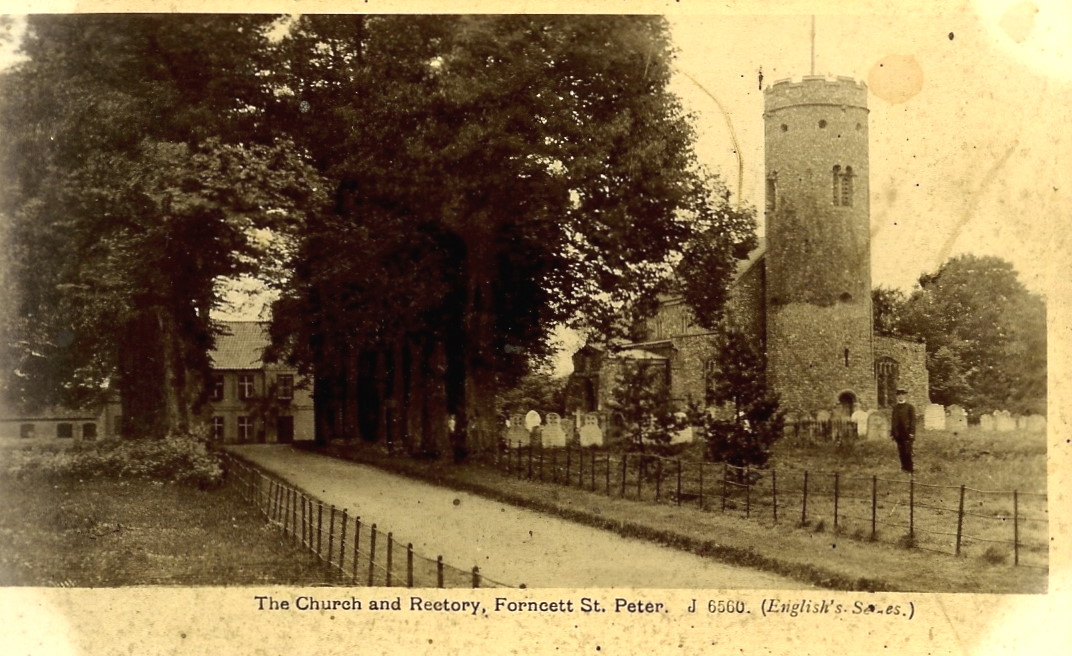The Wordsworths in Forncett
This year is the 250th anniversary of William Wordsworth's birth (7 April 1770). So, this is a good time to remember that our village of Forncett featured in Wordsworth's early life and especially in that of his younger sister, Dorothy.
William and Dorothy are usually associated with the Lake District, where they lived for most of their adult lives. However, their formative childhood years were largely spent apart. They were orphaned at a very young age and all five Wordsworth children were sent to live with different relatives. In 1788, Dorothy's uncle, Rev. William Cookson, who was newly married, moved to take up a new post as vicar of Forncett. Dorothy, aged 17, came with them and she lived at the rectory in Forncett St Peter until 1793.

This time gave Dorothy her first real taste of rural living and undoubtedly left a lasting impression on her. She wrote frequently to William and to her childhood friend, Jane Pollard. Many of her letters survived and tell us much about her life in Forncett. Shortly after her arrival here she wrote:
"Forncett is a little village, entirely inhabited by farmers, who seem a very decent kind of people. My uncle's house is very comfortable, and the gardens will be charming. I intend to be a great gardener, and to take care of the poultry, which we have in great abundance."
Compared to today, Forncett was really quite isolated in 1788. The railway had yet to come to Forncett and, in order to post her letters, Dorothy had to walk to Long Stratton, a 6 mile round trip. Soon after arriving at the rectory she set up a small school for local girls. This was, in effect, the first recorded school in the parish. She wrote to Jane:
Did I ever tell you that I have got a little school? I have nine scholars. Our hours in winter are, on Sunday mornings, from nine till church time; at noon, from half-past one to three; and at night, from four till half-past five. Those who live near us come to me every Wednesday and Saturday evening. I only instruct them in reading and spelling; and they get off prayers, hymns, and catechism. I have one very bright scholar, some very tolerable, and one or two very bad.
Dorothy undoubtedly enjoyed her years in Forncett but she desperately missed the company of her brother. William was studying in Cambridge and occasionally came to stay at the rectory when they would walk the local lanes together. So, whilst our normal picture of William Wordsworth is "wandering lonely as a cloud" in the hills above Grasmere, we should not forget that, in 1790, a much younger Wordsworth wrote "Sweet was the walk along the narrow lane" in which he recalled their favourite walk in Forncett.
Sweet was the walk along the narrow lane
At noon, the bank and hedgerows all the way
Shagged with wild pale green tufts of fragrant hay,
Caught by the hawthorns from the loaded wain,
Which Age with many a slow stoop strove to gain;
And childhood, seeming still most busy, took
His little rake; with cunning side-long look,
Sauntering to pluck the strawberries wild, unseen.
Now, too, on melancholy's idle dreams
Musing, the lone spot with my soul agrees,
Quiet and dark; for through the thick wove trees
Scarce peeps the curious star till solemn gleams
The clouded moon, and calls me forth to stray
Thro' tall, green, silent woods and ruins grey.
